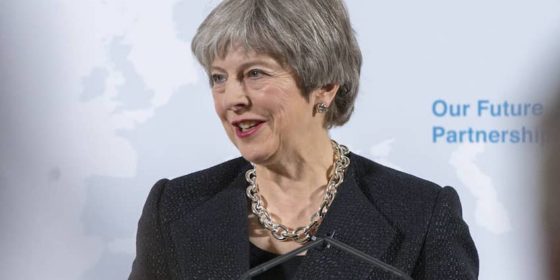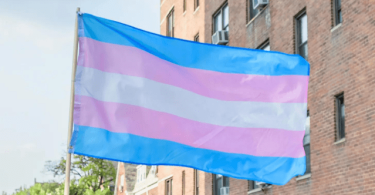On the 30th anniversary of the homophobic legislation section, 28 came into effect – The UK Prime Minister Theresa May has written a letter to the LGBTI community. And it’s already facing a backlash.
In it she pledges her government’s support to:
‘Help make us a country where no one feels the need to hide who they are or who they love.’
Published in the latest issue of Gay Times, she also says an LGBT Action Plan will be published this summer following the results of a nationwide survey for the LGBTI community.
GSN exclusively revealed in March, this survey meant the Home Office was considering a ban on gay conversion therapy.
30 years since banning the ‘promotion of homosexuality’ in UK schools
The letter comes on the 30th anniversary of Margaret Thatcher’s Conservative government legislation banning the ‘promotion of homosexuality’ in schools.
The law, repealed 15 years later, created a generation of young people and teachers afraid to speak about their sexuality.
Today’s letter also addresses the ongoing delayed gender recognition consultation. May says it will be published ‘soon.’ The delay has come after a series of resignations from those in the Women’s and Equalities ministerial role.
May says the action plan will set out ‘concrete steps the Government will take to improve lives for LGBT people.’
‘We’ve also engaged with experts to understand better the limitations of the current system of gender recognition and will soon publish a public consultation on how we best reform the process.
‘Words are cheap, it’s action that counts’
The opposition party Labour have already slammed the letter as ’empty PR.’
Shadow women and equalities minister Dawn Butler says: ‘All this Government seems to do is make announcements about future announcements, it’s just empty PR.
‘Theresa May announced a consultation on the Gender Recognition Act last August, but nearly a year later it hasn’t even started.
‘We need to see deeds, not just words, from the Conservatives. Today marks 30 years since Thatcher’s Government introduced the cruel Section 28, a grim moment in our country’s history, which was defended by Theresa May.’
LGBTI rights campaigner Peter Tatchell says the May’s words are laudable but adds ‘words are cheap.’
‘It’s action that counts. The Prime Minister has imposed direct rule on Northern Ireland. She is legally entitled to legislate same-sex marriage but is refusing to do so, despite 76% public support for marriage equality. This is collusion with the homophobic DUP.
‘Reforming the gender recognition process for trans people was agreed in principle ages ago. The planned new public consultation looks like a delaying tactic and a sop to anti-trans campaigners.
‘Theresa May has declined to make equality and diversity lessons mandatory in every school, to reduce homophobic bullying and hate crime. That’s a big fail.’
Last week for IDAHOBIT, Theresa May’s Instagram account posted a video about how introducing equal marriage was one of her ‘proudest moments.’
Could Section 28 come back?
Could LGBTI rights go backward after Brexit? The government promises they won’t. But there is no guarantee.
A new report commisioned by Gay Star News argues that Section 28 couldn’t happen under the modern EU rules.
But without EU membership, the UK has nothing to stop LGBTI-hating politicians from passing a similar law in future.
In particular, the report recommends the UK retains the EU Charter of Fundamental Rights. This effectively guarantees many of the rights we enjoy today, politicians can’t just take them away. But the government says we don’t need the Charter in UK law post Brexit.
One of the report’s authors, Jonathan Cooper, is a leading human rights barrister. He was involved in some of the key European court cases that led to improved LGBT rights in the UK.
In the report, he argues that the loss of the EU Charter of Fundamental Rights is a mistake:
‘We are also removing from the UK’s jurisdiction the only international binding legal instrument that expressly prohibits discrimination on the grounds of sexual orientation in the text of the document.
‘That is counter-intuitive. Were those who voted to leave the EU voting to take away LGBT rights? Without replacing those rights with something equal or better? It is unlikely that was their intent.’
Read More from Gay Star News:
It’s time the Conservatives apologized to all of us for Section 28
This is how Brexit could hurt you as an LGBTI person in the UK







